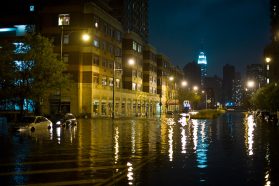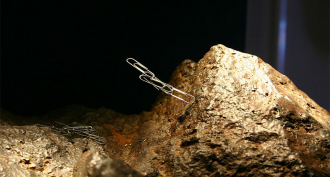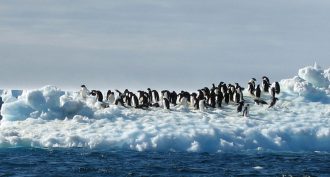Earth

Educators and Parents, Sign Up for The Cheat Sheet
Weekly updates to help you use Science News Explores in the learning environment
Thank you for signing up!
There was a problem signing you up.
-
 Earth
EarthGroundwater removal linked to quake
Pumping water from the ground in southeastern Spain may have triggered a deadly 2011 earthquake there.
-
 Climate
ClimateWatching our seas rise
Satellites, coral reefs, ancient Roman fishponds and sinking cities help us understand how humans are changing sea level.
By Douglas Fox -
 Environment
EnvironmentExhaled air: A problem in buildings?
New studies suggest carbon dioxide that accumulates in classrooms could limit how well the brain processes information, lead to more student absences.
By Janet Raloff -
 Earth
EarthEarth’s big breakup
Powerful motions beneath the Indian Ocean unleashed a series of earthquakes near Sumatra.
-
 Microbes
MicrobesLiving long beneath the sea
Microbes in the mud beneath the seafloor may live millions of years, redefining what it means to be old and alive.
-
 Chemistry
ChemistryMaking rocks into magnets
Lab experiments show one way that certain types of stones can morph into magnets.
By Sid Perkins -
 Oceans
OceansIcy inns at Earth’s end
Intrepid researchers discover icebergs host large and lively communities of life.
-
 Climate
ClimateSeal scientists
Elephant seals help climate scientists understand deepwater heating around Antarctica.
-
 Climate
ClimateA record Arctic melt
Satellites show summer 2012 sea ice covering the Arctic Ocean shrunk to a record low.
-
 Climate
ClimateHot summer for a cold island
A rare heat wave rolled over Greenland in July, thawing its ice and snow.
-
 Animals
AnimalsPython-palooza!
Monster-sized Burmese python bearing record-number of eggs retrieved in the Florida Everglades.
By Janet Raloff -
 Climate
ClimateIron versus climate change
Metal deposits can promote the growth of ocean algae that gobble greenhouse gas.
By Roberta Kwok